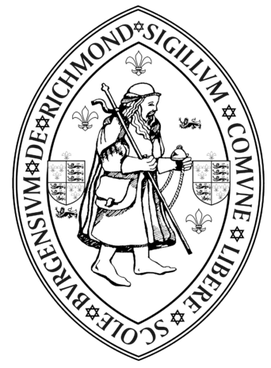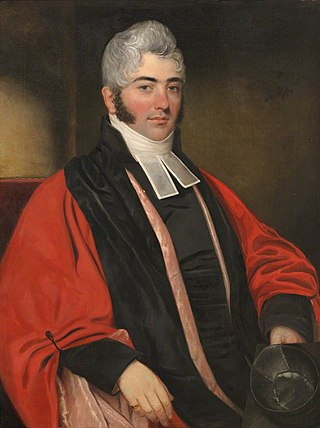Related Research Articles

Sidney Sussex College is a constituent college of the University of Cambridge in England. The College was founded in 1596 under the terms of the will of Frances Sidney, Countess of Sussex (1531–1589), wife of Thomas Radclyffe, 3rd Earl of Sussex, and named after its foundress. In her will, Lady Sidney left the sum of £5,000 together with some plate to found a new College at Cambridge University "to be called the Lady Frances Sidney Sussex College". Her executors Sir John Harington and Henry Grey, 6th Earl of Kent, supervised by Archbishop John Whitgift, founded the Protestant College seven years after her death.

The Ascension Parish Burial Ground, formerly known as the burial ground for the parish of St Giles and St Peter's, is a cemetery off Huntingdon Road in Cambridge, England. Many notable University of Cambridge academics are buried there, including three Nobel Prize winners.

Samuel Ward (1572–1643) was an English academic and a master at the University of Cambridge. He served as one of the delegates from the Church of England to the Synod of Dort.
Sir William FitzWilliam was an English Lord Justice of Ireland and afterwards Lord Deputy of Ireland. In 1587, as Governor of Fotheringhay Castle, he supervised the execution of the death sentence on Mary, Queen of Scots. He was the Member of Parliament for Peterborough and represented County Carlow in the Irish House of Commons. He lived at Gainspark, Essex, and Milton Hall.
Francis Wollaston was an English scientist. He was elected a Fellow of the Royal Society in 1723. Wollaston was the third son of William Wollaston. He was educated at Sidney Sussex College, Cambridge.

Richmond School & Sixth Form College, often referred to simply as Richmond School, is a coeducational secondary school located in North Yorkshire, England. It was created by the merger of three schools, the oldest of which, Richmond Grammar School, is of such antiquity that its exact founding date is unknown. The first mentions of it in writings, however, is estimated, to be between 1361 and 1474. It was officially ratified as an educational establishment in 1568 by Elizabeth I.

The Choir of St George's Chapel at Windsor Castle exists to sing services in St George's Chapel at Windsor Castle.
Francis John Hyde Wollaston FRS was an English natural philosopher and Jacksonian Professor at the University of Cambridge.

Levett is a surname of Anglo-Norman origin, deriving from [de] Livet, which is held particularly by families and individuals resident in England and British Commonwealth territories.
Gilbert Clerke (1626–c.1697) was an English mathematician, natural philosopher and Socinian theological writer.
Francis Sawyer Parris (1707–60) was an English biblical scholar. His editorial textual corrections, italicisations, marginal notes, column headings and cross-references played a major part in updating and standardising the 1611 Authorised King James Version of the Bible.
James Tate was the headmaster of Richmond School and canon of St Paul's Cathedral, London.
Francis Newbery was an English publisher and businessman.

Edward Pearson (1756–1811) was an English academic and theologian, Master of Sidney Sussex College, Cambridge from 1808.
The Very Revd John Frankland was an 18th-century academic and Dean in the Church of England.

William Chafy served as Master of Sidney Sussex College, Cambridge from 1813 until his death.
Francis Aldrich, D.D. was an academic in the late sixteenth and early seventeenth centuries.